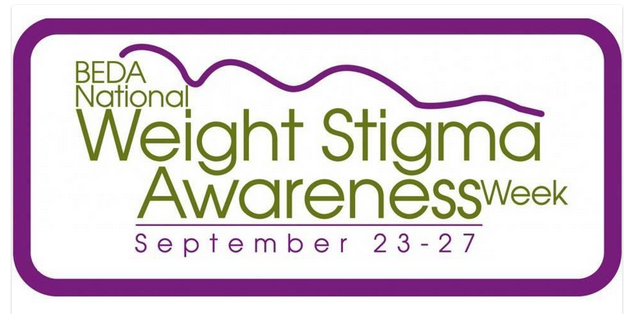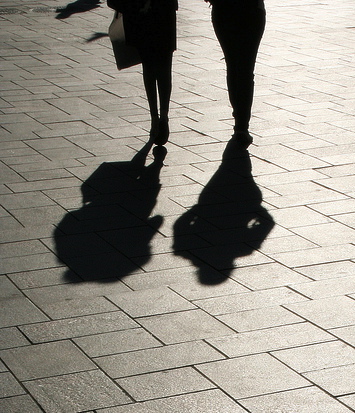When weight bias extends to the people providing treatment
 September 21, 2013 by
September 21, 2013 by  Sumati Gupta, PhD
Sumati Gupta, PhD 
This post is part of BEDA's Weight Stigma Awareness Week
As a psychologist who treats binge eating and bulimia, I assume that I am less biased than the average person when it comes to weight. I hear people’s innermost struggles with emotions and eating on a weekly basis. Without experiening a high level of empathy for these struggles, I couldn’t do my job. Despite all that, I live in a culture that heavily stigmatizes obesity. A new research study suggests I might need to re-examine my own possible biases – researchers found that many clinicians who treat eating disorders hold negative stereotypes related to weight.
The study is published online this month in the International Journal of Eating Disorders. Researchers surveyed hundreds of eating disorder treatment professionals including psychologists, registered dieticians, and psychiatrists who, on average, had 16 years of experience mostly in private practice. Many (42%) reported they had personally experienced some form of teasing, unfair treatment, or discrimination because of their own weight.
The treatment professionals anonymously described many negative stereotypes held by colleagues in the field, and, to a lesser degree, endorsed their own negative stereotypes. The majority of respondents (56%) said they “had heard and witnessed other professionals in the their field making negative comments about obese patents.” When asked about their own beliefs about obese people, a smaller percentage agreed that they “have poor self-control” (33%), “have no willpower” (16%), and are “self-indulgent” (15%). Some also endorsed feeling frustrated with these patients (11%) and that “obese patients can be difficult to deal with” (15%)."
There’s an interesting difference between how professionals described colleagues’ biases more negatively than their own. Perhaps professionals paid more attention to colleagues who spoke negatively regarding obese patients or perhaps they had trouble identifying their own negative stereotypes in the context of answering other questions about their work as a treatment provider (otherwise known as cognitive dissonance).
How did professionals' biases about patients relate to their understanding of obesity in general and to their ability to treat patients? The researchers found that providers with stronger weight biases were more likely to “believe that obesity is caused by behavioral factors (such as overeating and lack of willpower) rather than environmental or biological/genetic contributors” and to “perceive poorer treatment outcomes for these patients compared to professionals who endorsed less weight bias.” A treatment provider’s own biases toward obese patients can clearly affect the extent to which they believe they can actually help these patients.
While this study found some weight bias among eating disorder treatment professionals, the researchers described the bias as slightly lower than that seen in other health professionals. On a related note, another study receiving a lot of press this month described physician bias in detecting eating disorders in case studies of two overweight teens.
Taking a closer look at the treatment providers who exhibited stronger weight bias, the researchers found that they tended to have less job experience and a lower BMI. Interestingly, they were more likely to be trying to lose weight. While we might guess that someone trying to lose weight would have more empathy for obese patients, the study authors suggest these practitioners might have a heightened fear of becoming fat and also the difference in how much less weight they were trying to lose compared to obese patients might contribute to the bias.
While the study highlights weight bias among treatment professionals, it’s important to note that most of them did not personally endorse negative stereotypes related to obesity. Nevertheless, it’s worthwhile for all clinicians, myself included, to re-examine their own stereotypes and how this may affect treatment.
Have comments or questions? Discuss them on the facebook page or contact Dr. Gupta directly
Dr. Gupta is a professor at Barnard College of Columbia University and provides individual therapy at Tribeca Psychology
Stay up to date on the latest research: Follow the blog on twitter, like on facebook, or subscribe.
You may also be interested in reading:
 Why are therapists neglecting to use treatments supported by research?
Why are therapists neglecting to use treatments supported by research?
 How much food your friends eat influences your own eating
How much food your friends eat influences your own eating
 How are people suffering from binge eating and bulimia perceived by the public?
How are people suffering from binge eating and bulimia perceived by the public?
 Dr. Gupta is a licensed psychologist and professor at Barnard College, Columbia University. She specializes in the treatment of anxiety and eating/weight issues at
Dr. Gupta is a licensed psychologist and professor at Barnard College, Columbia University. She specializes in the treatment of anxiety and eating/weight issues at 